| ARTEINBICI > Eccetera Buster Keaton Bicinematografia e... Poesia |
HOME Intro Programmi Dokumenta Materiala Etc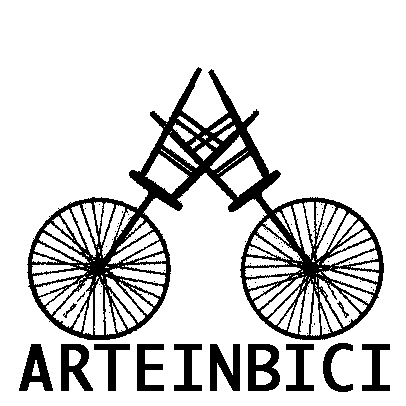 |
|
www.metrogirl.com/thriftshop/keaton.html "Our Hospitality" (...) the film begins with a cut to New York City circa 1830, when cows still roamed in open fields and traffic was just beginning to be a problem. Keaton makes his appearance, elegantly dressed and standing on a porch somewhere in the city. Wearing a ruffled shirt with fine tie, waistcoat, cutaway jacket, and top hat, McKay is obviously a different sort than "Our Hero." A man of some means, McKay examines a sealed envelope and then, without so much as a wink or a smile, he hops onto his bicycle, removes his top hat, puts the envelope in it, and places the top hat back on his head with an elegant tap. His bicycle ride is ready to begin. Demonstrating Keaton's fondness for unusual machines, however, the bicycle McKay rides is not just any bicycle, but a contraption of the highest order. Modeled on the Gentleman's Hobbyhorse (Blesh 226), one of the earliest known bicycles, McKay's vehicle immediately strikes ones as being absurdly awkward to ride. Minus anything resembling a seat and without pedals, the bicycle's handlebars are more like metal reins. The metal bar that crosses McKay's abdomen seems designed simply to give him something to lean against. As McKay begins to ride, it becomes apparent that in order to propel himself forward, he must swing his legs back and forth, as if he is riding on a swing. It is not a graceful vehicle to ride; it is difficult to steer and certainly uncomfortable. Nevertheless, McKay maintains his façade of elegance. His entire frame seems permeated with a sense of serenity untouched by his surroundings. He is proud of his bicycle and, in his mind, all as is as it should be, even if he does look like a fool with his swinging legs and his wobbly bicycle. Glancing about himself nonchalantly, he is apparently not in a hurry. It is conceivable that this character has never been in a hurry. His life in New York has been quiet, peaceful, perhaps even unexceptional -- a far cry from the life he would have lived if he had remained in the mountains where he was born, and an even farther cry from the situation he is about to get himself into. This portion of the scene ends as McKay arrives at an intersection. (...) Riding in his fine clothes on his comically inelegant bicycle, McKay is a gentle, fastidious creature (...) |
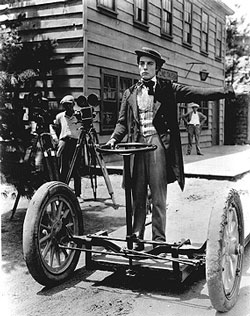 www.filmkultura.iif.hu 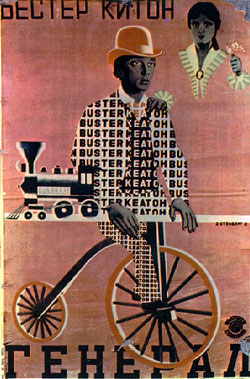 |
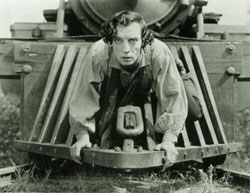 www.smirk.com Buster Keaton in treno |
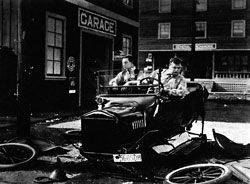 www.bonnerkinemathek.de Buster Keaton in Auto |
|
www.geocities.com/princessrajah/bkwalk.html
In 1930 Garcia Lorca left proud, grave, unhurried Andalusia and found himself in New York. He was appalled. For him it was "a Senegal with machinery." He wrote a group of tormented surrealist poems in which he set down his terror of the concrete canyons of the city where men stagger "unslept like those who've just come from a bloody shipwreck." When his horror had eased a bit, it amused him to recall his favorite American fool, Buster Keaton, and to imagine him making an innocent's journey through the desperate landscape. It was probably shortly after finishing the agonized Poeta en Nueva York that he wrote the sweet little squib--dadaist, surrealist, "absurd,' called El Paseo de Buster Keaton. It remained unnoticed among his papers (missing inclusion in the Obras Completas published by Losada in Buenos Aires) until it appeared in the small collection of Tres Farsas (Coleccion Teatro de Bolsillo, Mexico City, 1959). Characters:
Buster Keaton COCK: Cock a
doodle doo. KEATON: My poor
little boys. (He draws a wooden sword and kills them.). |
|
| HOME Intro Programmi Dokumenta Materiala Etc www.hypertextile.net/ARTEINBICI |
|